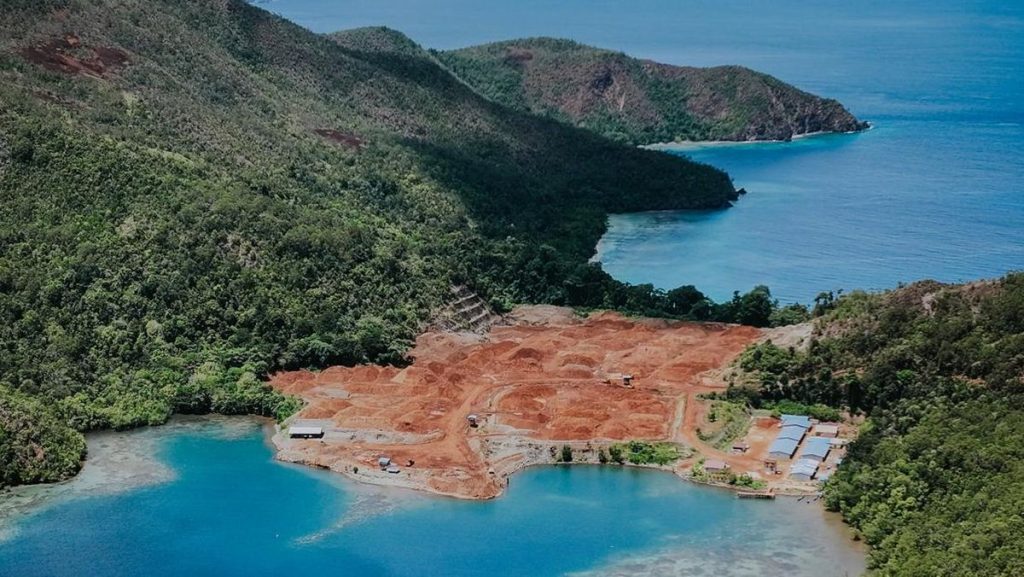Raja Ampat is free from nickel mining
The government’s decision to revoke mining business permits in the conservation area of Southwest Papua is an important moment in Indonesia’s environmental history. The area known as the world’s underwater paradise is now getting a breath of fresh air because Raja Ampat is free from nickel mining which has caused widespread controversy. This step is seen as a real form of protection for a national strategic area that is very vulnerable to industrial exploitation.
Raja Ampat is free from nickel mining after four official nickel mining companies lost their operating permits. The four companies had previously obtained exploration permits, and some of them had submitted the process towards production. However, a re-evaluation by the Ministry of Energy and Mineral Resources (ESDM) together with related parties showed that their presence poses a major risk to the balance of the ecosystem in the Raja Ampat area.
The Raja Ampat area is free from nickel mining thanks to pressure from various parties, including indigenous people who have persistently fought for their rights to their customary land. For years, local people have rejected the existence of nickel mining which is considered to damage the environment and threaten the sustainability of marine resources that are the mainstay of their economy and culture. Peaceful protests, petitions, and the involvement of social media have become tools of struggle to ensure that Raja Ampat is truly free from the dangers of mining activities.
Worrying environmental impacts
The issue that Raja Ampat is free from nickel mining is inseparable from major concerns about the ecological impacts caused by the mine. Nickel, although one of the strategic commodities in the global energy transition, still leaves serious environmental problems if not managed sustainably. Ex-mining land can trigger erosion, pollute rivers, and destroy coral reefs due to waste runoff.
The geographical condition of Raja Ampat, which is an archipelago with the highest marine biodiversity in the world, makes it very vulnerable. Therefore, when the news that Raja Ampat is free from nickel mining was announced to the public, many parties welcomed it with joy. Environmental organizations, both national and international, expressed their appreciation for the government’s firm steps in preserving the irreplaceable ecological heritage.
When Raja Ampat is free from nickel mining, this area has a greater chance of maintaining its status as a world geopark recognized by UNESCO. Mining that takes place around protected areas can have a domino effect on biodiversity, which includes more than 500 coral species, 1,400 fish species, and other marine biota that have not been fully mapped. Therefore, the revocation of mining permits is considered a long-term investment for environmental sustainability and sustainable tourism.
The role of indigenous communities and civil society organizations
The movement to free Raja Ampat from nickel mining did not only come from above, but was driven from below. The long struggle of indigenous communities such as the Maya, Matbat, and others became the moral foundation for the political decisions taken. For them, land and sea are not just economic resources, but sacred cultural identities that are passed down from generation to generation.
Indigenous elders have voiced their rejection since mining permits were first issued. They held village meetings, sent letters of objection, and involved legal aid institutions to systematically monitor this case. Thanks to their persistence, Raja Ampat being free from nickel mining became a reality, not just discourse on paper. This victory also motivated indigenous communities in other areas to voice their rights to protect their living space.
Non-governmental organizations such as WALHI, Greenpeace Indonesia, and the Mining Advocacy Network (JATAM) also participated in putting pressure on the procedurally flawed licensing process. They revealed that the mining permit was in a protected forest area, and did not involve proper public consultation. After this case was widely revealed, support for the mission to make Raja Ampat free from nickel mining grew from various groups, including academics and religious figures.
Government policy and mining permit evaluation

The government’s bold move to ensure that Raja Ampat is free from nickel mining is the result of a comprehensive evaluation of all mining permits issued in Southwest Papua. The government acknowledges that over the past few decades, the extractive sector licensing process in Indonesia has not been fully transparent and participatory. Therefore, evaluation is an absolute necessity to ensure sustainability.
In the process, the government revoked four nickel mining business permits that were deemed to have violated regulations, both in terms of administration and environmental impact. One company was even known to have not submitted complete environmental impact analysis documents, but continued to carry out initial exploration. With this revocation, the government confirms its commitment to maintaining strategic areas from an ecological and tourism perspective. This decision is also proof that Raja Ampat is now legally and administratively free from nickel mining.
However, there is one company, PT Gag Nikel, which is still given permission to continue its operations. The reason is because its concession area is outside the area considered sensitive. However, the government has stated that supervision of the company will be increased so that the spirit that Raja Ampat is free from nickel mining is maintained, and does not open up new opportunities for exploitation.
Tourism and the green future of Raja Ampat
With Raja Ampat’s status as free from nickel mining, the future of this area is very likely to be fully directed towards the conservation-based tourism sector. So far, Raja Ampat has been known as a leading marine tourism destination in Indonesia. The beauty of its sea attracts thousands of divers and travelers from various countries every year, which creates a broad economic effect for the local community.
Read Also: Indonesia’s defeat after being beaten by Japan 6-0
Sustainable tourism can only grow in a place that is free from ecological damage. Therefore, ensuring that Raja Ampat is free from nickel mining is the foundation for developing a green economy that does not damage natural resources. The local government has also welcomed this opportunity by starting to draft regional regulations on strict protection of marine areas and mangrove forests.
Ecotourism training programs, the provision of environmentally friendly homestays, and the involvement of village youth as local guides have begun to be encouraged. They are the next generation who will inherit Raja Ampat in its intact condition. With the threat of mining gone, the opportunity to build a strong, fair, and environmentally friendly local economy becomes more real. The spirit that Raja Ampat is free from nickel mining now lives on in community-based development plans.
International response and global expectations
The decision to free Raja Ampat from nickel mining has not only become a national spotlight, but has also received attention from the international community. Environmental organizations such as WWF, Conservation International, and even UNESCO have issued open statements praising Indonesia’s commitment to protecting areas with high biodiversity value. Raja Ampat is considered an important world natural laboratory for science and climate change.
Foreign media have also picked up the news that Raja Ampat is free from nickel mining, citing Indonesia as a positive example in prioritizing ecology over the interests of resource exploitation. This is certainly an achievement in environmental diplomacy that cannot be underestimated. In a world that is increasingly aware of the climate crisis, a decision like this will strengthen Indonesia’s position in the eyes of the world.
The Indonesian government also has the opportunity to prove its environmental commitment in global forums such as the COP and the G20 meeting. Keeping Raja Ampat free from nickel mining can be a narrative of Indonesia’s green policy that is in line with the target of net-zero emissions and protection of tropical ecosystems.
One platform that highlights the role of digital in this campaign is Link Ampmwin, which helps disseminate information and build online solidarity for the protection of the Raja Ampat area. Information technology has proven to be a critical tool in the modern environmental movement that spans borders.
Challenges ahead after the permit revocation
Although Raja Ampat is now free from nickel mining, new challenges still loom. Efforts to restore ex-mining land that was explored are a priority. The government must ensure that the damage that has occurred can be repaired through ecological rehabilitation. This process requires funding, technical expertise, and local community participation so that the results are sustainable.
In addition, the monitoring mechanism for economic activities in the Raja Ampat area must be strengthened. Although nickel mining has been revoked, the potential threat from illegal fishing, unplanned infrastructure development, or mass tourism remains. Therefore, ensuring that Raja Ampat is free from nickel mining must be accompanied by a comprehensive cross-sectoral protection policy.
Raja Ampat is a priceless natural gift. The decision to stop nickel mining is the starting point, not the end. The long journey to keep Raja Ampat free from nickel mining must continue to be fought for by all stakeholders, for the sake of future generations.


